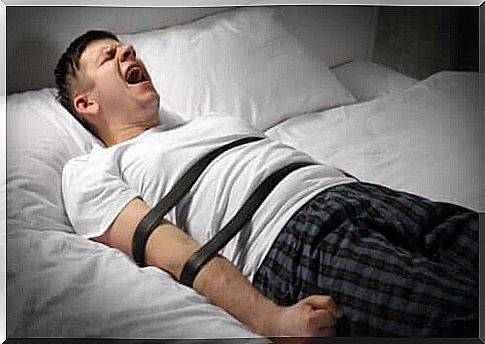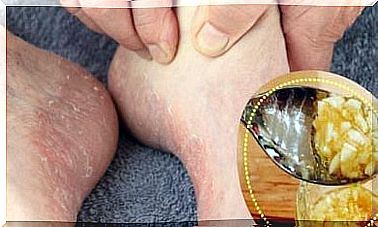Sleep Paralysis: Do You Know How To Avoid It?

You wake up in the middle of the night and can’t move. You are covered in a cold sweat and you don’t know what’s going on. You feel tightness in your chest. This is sleep paralysis. However, this phenomenon can be avoided.
Sleep paralysis occurs during the REM phase, which is one of the most important stages of sleep, when brain activity is elevated. Fortunately, this feeling cannot last more than 3 minutes. What are the reasons for its formation?
Where does sleep paralysis come from?
If you are familiar with the feelings described above, you should know that sleep paralysis has many different causes. It’s more common in people who work shifts or suffer from jet-lag. Lack of regular hours and sleep hygiene can lead to it.
However, when you suffer from elevated levels of stress, it can also affect you. Your body is under constant tension, your mind is very active, so your body reacts this way. It’s not fun.
Sleep paralysis risk factors
Knowing the risk factors for sleep paralysis allows you to understand the causes of symptoms. So get to know them.
If you take action to eliminate these factors, it will be easier for you to prevent future episodes. Here’s what to keep in mind:
- Routine changes : such as shift work.
- Working at night : sleeping during the day can cause problems.
- Fatigue : you are not getting enough rest or sleeping well.
- Narcolepsy : excessive sleepiness can be problematic.
- Mental disorders : bipolar disorder, post-traumatic stress disorder.
All these risk factors increase the predisposition to experience sleep paralysis. Their identification makes it easier to find a solution to the problem. The tips below may also be helpful.
How to avoid it?
There are different ways to avoid sleep paralysis. We recommend 5 ways that are usually effective. However, it is worth consulting a doctor. Perhaps he will have even better suggestions for you.
1. Exercise can be effective
First, try to exercise. It’s always a good idea whether you suffer from sleep paralysis or not. Exercise tires, relaxes and directs the body to regeneration. It also makes it easier to fall asleep.
2. Get enough sleep
Take care of proper sleep hygiene. Always go to bed at the same time whenever possible . Thanks to this, your body will prepare itself for sleep at a given time.
You don’t have to stay rigid for 7 or 8 hours. What does your body need? Maybe 6 or 9 hours would be more appropriate? Get to know your body to learn to properly rest.
3. Reduce your stress
The third piece of advice is to reduce stress. It is difficult to relax in our pandemic society. Therefore, try to introduce habits such as exercise. They will relax you – and so will meditation. You will feel better and calmer.
4. Caution with nutrition
The fourth piece of advice is about nutrition. Do you eat at fixed times? Are your meals nutritious? Supermarket shelves are full of highly processed products that cause gas, malaise and trouble resting. Try to change your eating habits for the better.
5. Put aside stimulating drinks
Fifth and last, avoid stimulating drinks. Drink them occasionally and at special times. We’re not just talking about coffee. This also applies to energy drinks. Avoid them at all costs.
Sleep paralysis does not only affect adults
Do you suffer from this condition? Follow our tips to avoid the next episodes. Remember that sleep paralysis does not only affect adults. Pediatric societies report that it also occurs in children and adolescents. So let’s take care of sleep hygiene.









